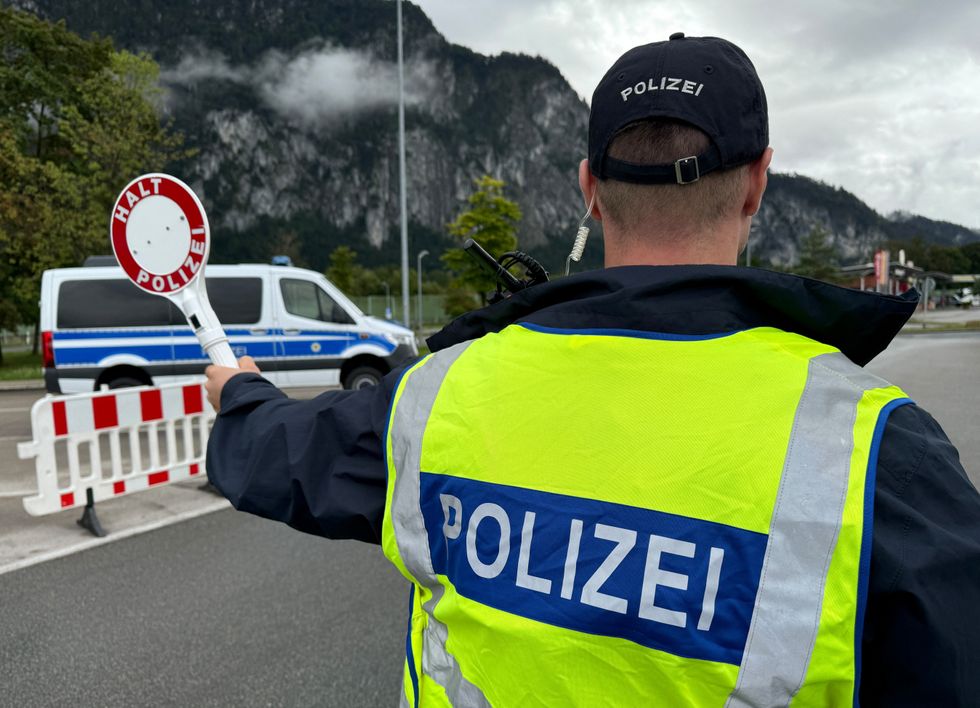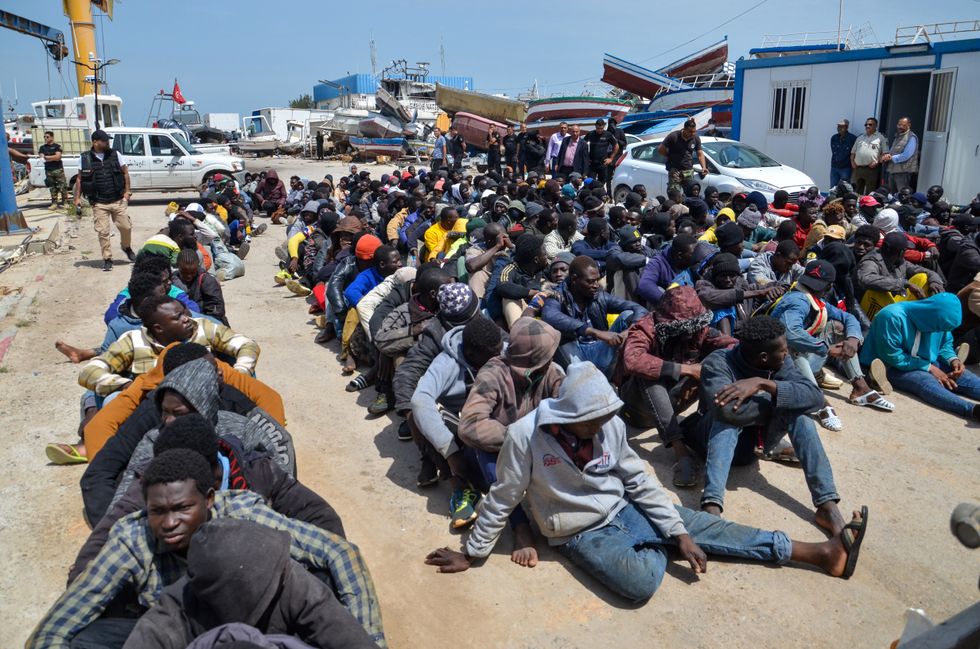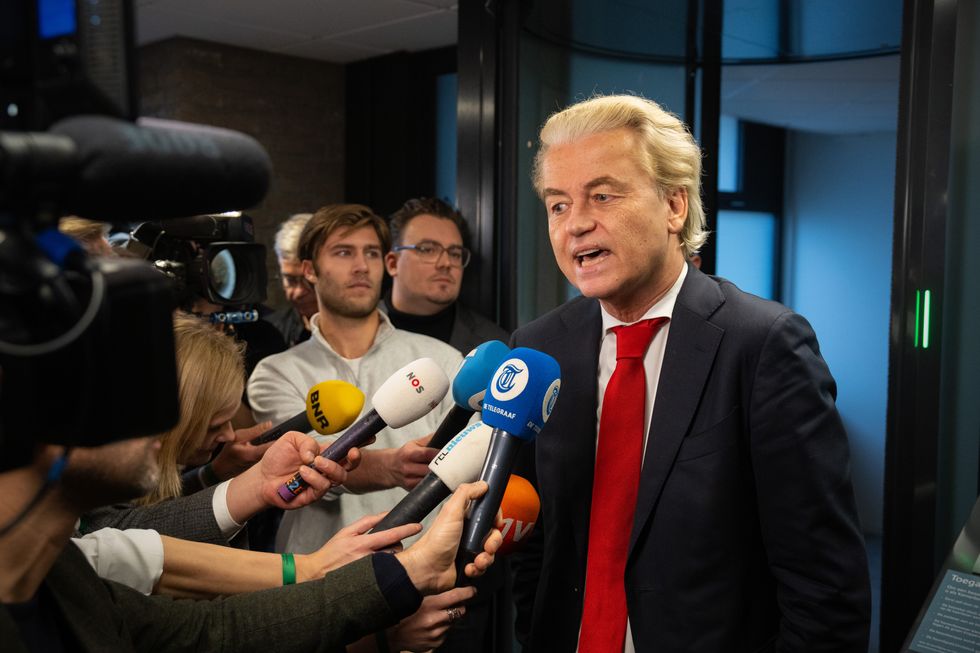Border checks conducted by German police
REUTERS
Germany is tightening its borders with random checks to curb irregular migration, raising concerns about cross-border trade and traffic disruption
Don't Miss
Most Read
Trending on GB News
The European Union is on track to receive approximately one million asylum applications in 2024, according to recent figures from the EU Agency for Asylum (EUAA).
In the first half of this year, 513,000 applications were logged, slightly fewer than in the same period of 2023.
The EUAA predicts that EU+ countries, which include the 27 EU member states plus Norway and Switzerland, could see around a million applications by year's end.
This would mark the second consecutive year of such high numbers, matching levels last seen in 2016.
 Border checks conducted by German policeREUTERS
Border checks conducted by German policeREUTERSHowever, Germany has introduced border controls with all nine of its neighbouring countries in an effort to curb irregular migration.
The move, brought in on Monday, involves random checks on identity documents at land borders and within a 19-mile zone inside Germany.
Authorities in Berlin have emphasised that these are not full checks on all cross-border traffic.
"Any disruption must be kept to a minimum," the German police stated.
The new border controls have raised concerns about their impact on cross-border trade, particularly with the Netherlands.
The Dutch transport sector, crucial for logistics from Rotterdam's port to Germany, has expressed worry.
LATEST DEVELOPMENTS: Irregular migrants during an operation carried out by the Tunisian National Guard against African irregular migrants who want to reach Europe illegally via the Mediterranean Sea REUTERS
Irregular migrants during an operation carried out by the Tunisian National Guard against African irregular migrants who want to reach Europe illegally via the Mediterranean Sea REUTERSThe German-Dutch Chamber of Commerce warned of potential economic consequences.
With 100,000 trucks crossing the border daily, even an hour's delay could add €100 to each load's cost.
However, Geert Wilders of the Dutch Freedom Party (PVV) said Berlin’s decision was a “great idea”.
He later asked if the Netherlands would follow suit, while Hungarian Prime Minister Viktor Orbàn said: “Welcome to the club.”
Despite such concerns, early implementation has shown some results.
German police arrested three suspected drug smugglers near the Dutch border after finding cannabis in their car on Monday.

Geert Wilders said Berlin’s decision was a “great idea”
GettyGerman Interior Minister Nancy Faeser defended the decision to introduce border checks, despite criticism from neighbouring countries like Austria and Poland.
"Our line is: continue to push back irregular migration, stop people smugglers, put a stop to criminals, identify and stop Islamists," Faeser told the Bild newspaper.
She emphasised that Germany was not taking unilateral action, stating, "We are not taking national solo actions that would destroy Europe, but are acting in close co-ordination with our neighbours."
Tighter restrictions were introduced after the populist AFD surged to victory in a key state election and finished runner-up in a second.








